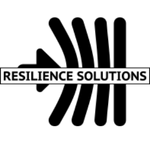Today marked the official launch of the CROSSFLOOD project with a successful kick-off meeting in Brussels. This exciting initiative brings together key stakeholders and experts from across Europe to enhance disaster resilience in post-conflict areas by addressing the unique challenges these zones face.
Post-conflict regions are often characterized by fragile governance, disrupted social cohesion, weakened infrastructure, limited access to essential services, and strained economies. Natural disasters, such as flooding, can exacerbate these vulnerabilities by displacing communities, disrupting livelihoods, and overwhelming already fragile systems. In addition, the presence of unexploded ordnance (UXOs), landmines, CBRN threats, and other remnants of war further complicates disaster response efforts, particularly in regions like Ukraine and its bordering areas, where recent conflicts have left a significant legacy of hazards.
CROSSFLOOD aims to strengthen the capacity of partner countries and the Union Civil Protection Mechanism (UCPM) to operate effectively in such complex environments. The project begins with an in-depth analysis of the factors that differentiate post-conflict zones from traditional disaster settings, providing the foundation for a specialized training program. This program will include e-learning modules, workshops, trainings, exercises, and lessons learned from recent conflicts, such as the Russo-Ukrainian war, to prepare teams to manage physical risks and address broader human and economic dimensions of disaster risk management.
The project is being implemented by a consortium of five dedicated partners from five countries, combining a diverse range of expertise: Romania’s Ministry of Internal Affairs – Department for Emergency Situations (Project Coordinator), Ukraine’s Lviv State University of Life Safety, Germany’s Universität der Bundeswehr München, the Netherlands-based NCT Consultants, and Austria’s Resilience Solutions Resch.
Resilience Solutions is proud to be part of this important and innovative project, contributing to building more robust and adaptable disaster risk reduction efforts across Europe.
The kick-off meeting in Brussels served as a vital step in aligning partners and laying the foundation for what promises to be a groundbreaking initiative. Stay tuned for updates as we move forward in this critical effort to enhance disaster resilience in post-conflict regions.


